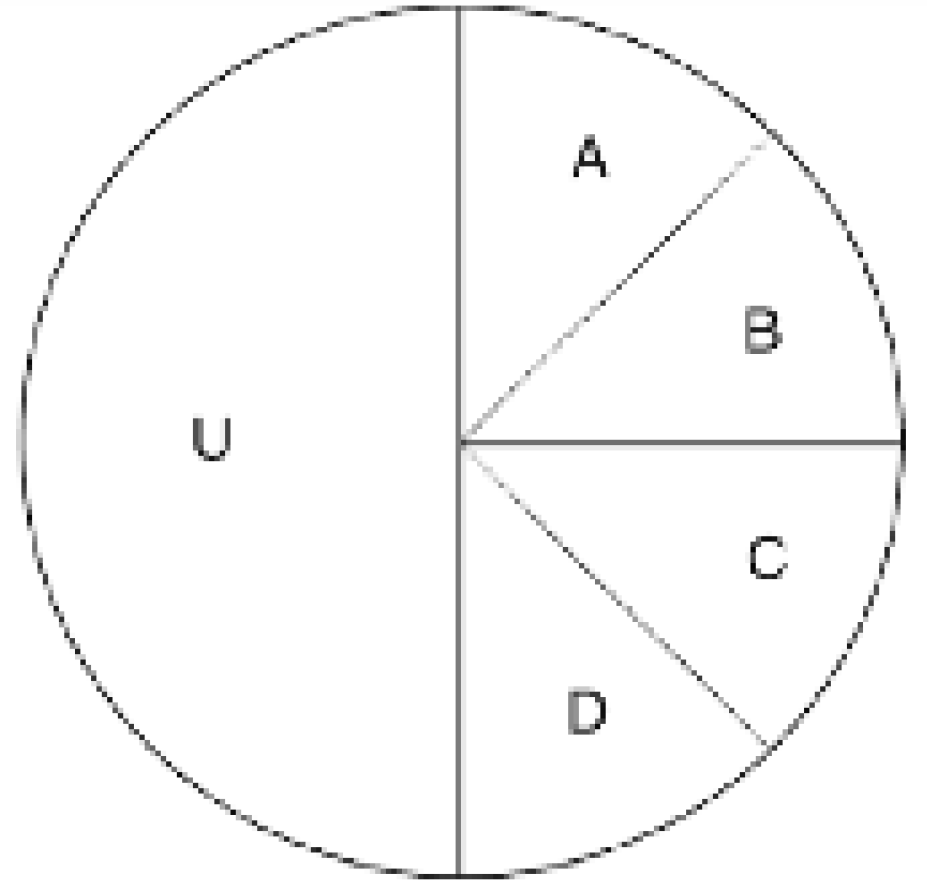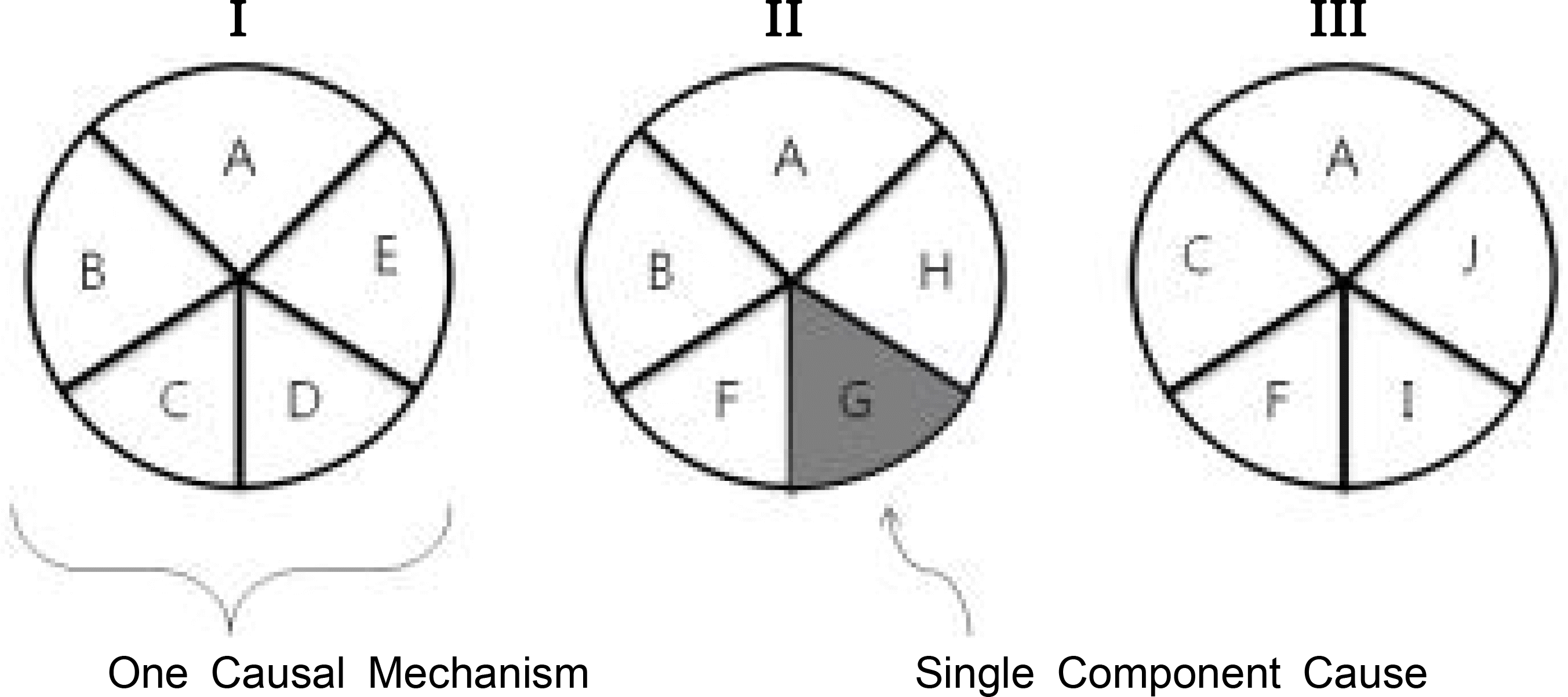Abstract
In medicine and public health areas, it is essential for researchers and clinicians to investigate causal relationships dealing with the terms of cause, causation and causality. In treating a patient, the treatment will be given based on the assumption that that treatment will cause an improvement or cure of the patient. For diagnosis, we need a causation concept to associate diseases with etiologic factors such as genetic, environmental, occupational and other components. The prevention and intervention of a disease involve the selecting process of probable causal factors too.
The causal problem is one of main issues in philosophy since ancient Greek. Aristotle theorized material, formal, efficient, and formal causes. Francis Bacon and Descartes mainly used induction and deduction, respectively. Hume denied the capacity of inductive methodologies to find truth. Among philosophers of science, the debates whether we can find objective truth or not will be continued. This causation can be two subsets, ontological and epistemological (or methodological). Traditional philosophical approaches mainly focus on ontological problems, such as what is causation?; are there causal laws? In general, scientific or epidemiological approaches are dealing with the epistemological dimension, i.e, causation criteria; test for a causal hypothesis.
For clinicians and researchers in medical and public health, it would be a good chance to review and re-think the notions of cause, causation and causality. Also there will be helpful understanding of more detail informations about the methodology such as causal inference, Hill’s criteria and Rothman’s causal pie model.
REFERENCES
1.Elwood JM. Critical appraisal of epidemiological studies and clinical trials. 3rd ed.New York: Oxford University Press;2007.
2.Mun JS., Choi SD., Jo SG. The historical-critical study of the important epistemological interpretations of the status of the principle of causality. The New Korean Philosophical Association. J NKPA. 1998. 15:113–35.
3.Rothman KJ. Inferring causal connections –habit, faith or logic? Rothman KJ, editor. editor.Causal Inferences. Chestnut Hill (MA): Epidemiology Resources Inc;1988. p.3–12.
4.Rothman KJ. What is causation? In: Epidemiology: an introduction. 2nd ed.New York: Oxford University Press;2012. p. 23–37.
5.Choi HC. Hume's causation conception and scientific explanation. Philosophical Studies. 2006. 20:67–97.
6.Yan SR. A probablistic analysis of causation. Philosophy. 1990. 34:171–196.
7.Jang DI. Kuhn and Popper, Science has something special. Gimmyoung Publishers. 2008.
8.Yoon SK., Lee SY. A study on the evolution of the philosophy of science. J Soc Sci. 1998. 9:189–213.
9.Lee YC. Science and truth: Popper vs. Wittenstein-Davidson. Philosophy. 1993. 39:303–24.
10.Shin JS. Science and philosophy of science. Science Philosophy and Culture. 1995. 15:79–98.
11.Bunge M. Causality and modern science. 3rd edition.New York: Dover Publication;1979.
12.Broadbent A. Conceptual and methodological issues in epidemiology: an overview. Prev Med. 2011. 53:215–6.

14.Greenland S. Evolution of epidemiologic ideas: annotated readings on concepts and methods. 1st ed.Newton Lower Falls (MA): Epidemiology Resources Inc;1987.
15.Parascandola M., Weed DL. Causation in epidemiology. J Epidemiol Community Health. 2001. 55:905–12.

16.Kundi M. Causality and the interpretation of epidemiologic evidence. Environ Health Perspect. 2006. 114:969–74.

17.Hill AB. The environment and disease: association or causation? Proc R Soc Med. 1965. 58:295–300.

18.Lagiou P., Trichopoulos D., Adami HO. Concept in cancer epidemiology and etiology. Adami HO, Hunter D, Trichopoulos D, editors. editors.Textbook of Cancer Epidemiology. 2nd ed.New York: Oxford University Press;2008. p. 127–54.
19.Weed DL. Causal criteria and Popperian refutation. Rothman KJ, editor. editor.Causal Inferences. Chestnut Hill (MA): Epidemiology Resources Inc;1988. p.15–32.
20.Thygesen LC., Andersen GS., Andersen H. A philosophical analysis of the Hill criteria. J Epidemiol Community Health. 2005. 59:512–6.

23.Parascandola M. Causes, risks, and probabilities: probabilistic concepts of causation in chronic disease epidemiology. Prev Med. 2011. 53:232–4.

24.Olsen J. What characterises a useful concept of causation in epidemiology? J Epidemiol Community Health. 2003. 57:86–8.

25.Olsen J., Christensen K., Murray J., Ekbom A. An introduction to epidemiology for health professionals. 1st ed.New York: Springer;2010.
26.Rothman KJ., Greenland S., Poole C., Lash TL. Causation and causal inference. In: Rothman KJ, Lash TL, Greenland S, editors. Modern epidemiology. 3rd ed. Philadelphia: 2012. p.5–31.
27.Rothman KJ. Epidemiology: an introduction. 2nd ed.New York: Oxford University Press;2012.
28.Higginson J. Proportion of cancer due to occupation. Prev Med. 1980. 9:180–8.
29.Bernstein DI., Bernsten IL., Chan-Yeung M., Malo J. Definition and classification of asthma in the workplace. In: Bernstein DI, Chan-Yeung M, Malo J, Bernsten IL, editors. Asthma in the Workplace. 3rd ed. New York: 2006. p.1–8.
Fig. 1.
(A) A necessary cause, (B) A sufficient cause, (C) A necessary and sufficient cause, (D) Most of causes.

Fig. 3.
Depiction of the constellation of component causes that constitute a sufficient cause, and U represents all of the other unspecified event, conditions.

Table 1.
Definitions of causation and their criticism from the epidemiological literature
Table 2.
Hill‘s criteria and their problems




 PDF
PDF ePub
ePub Citation
Citation Print
Print




 XML Download
XML Download